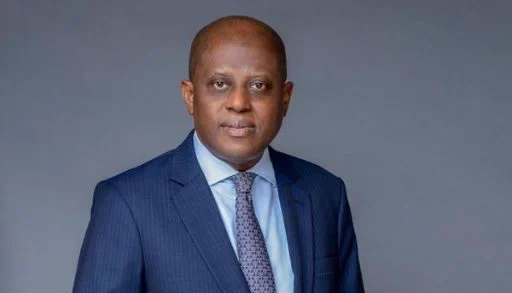
The recent nomination by President Bola Ahmed Tinubu of Mr Olayemi Cardoso as Governor of the Central Bank of Nigeria (CBN) and the subsequent confirmation by the Senate of the Federal Republic have laid to rest the controversy surrounding the substantive management of the apex monetary authority. The arrest, detention and continuing prosecution of the erstwhile Governor of the Bank, Mr Godwin Emefiele over alleged money laundering, fraud and abuse of office had cast some cloud of uncertainty over the real Sheriff in the management of the Bank.
The fact that Mr Emefiele was merely under suspension and despite the acting role being played then by Mr Folashodun Shonubi as head, tended to have fuelled this controversy. Now that information indicates that Emefiele had resigned, whether willingly or by persuasion, the coast is clearer for a new substantive Governor. Given the nomination and confirmation of Olayemi Cardoso, the ball is now in his court to demonstrate first hand, his capacity to satisfy the “fit and proper” criteria for the sensitive position of Governor of the Central Bank of Nigeria.
Cardoso’s nomination has been greeted with mixed reactions, naturally, given the diverse background of his critics and admirers, as to his competence or otherwise for the exalted office of the Governor of the CBN. It has been a mixed grill indeed.
While some applauded the appointment, others raised some concerns, wondering whether it was an appointment to satisfy some political interests. Alongside Mr Cardoso, four other persons were nominated to fill all the slots for the position of Deputy Governor in a fell swoop.
Mr Cardoso has basic background and qualification in managerial and administrative studies. While this does not appear to present him as one with knowledge of economics, which could have been an advantage for the conduct of monetary policy, such essential knowledge could have been acquired through informal means. With a second degree in public administration and his foray into the banking sector where he rose through the ranks in Citibank and ended up as Vice President in Citizens banks, there is no reason why he cannot excel as the man at the helm of the apex bank affairs. Beyond this, what can be leveraged on here is his broad-based private sector experience as well as his fiscal policy management experience as commissioner of the budget and planning portfolio in the Lagos State government under the then Governor Bola Ahmed Tinubu.
Globally, Central Bank Governors have a firm grasp of the knowledge of the macroeconomy as they must keep abreast of the macroeconomic indicators, especially the issues relating to the five core areas of the defined functions of the central bank namely, issue of the legal tender currency, maintenance of price and monetary stability, management of the country’s external reserves in such a way as to defend the international value of the local currency, management and development of the banking and financial system as well as being the banker and adviser to the Federal Government. These are wide-ranging issues that would challenge Mr Cardoso, as would any Governor, particularly those without a firm grasp of the core macroeconomic issues in this regard. Nevertheless, Mr Cardoso’s core competencies in administration, fiscal policy, commercial banking and stock broking present him with broad exposures that would provide him that basic background necessary to take off successfully as CBN Governor while the other core issues can be addressed while on the job. Instructively, he has demonstrated this by declaring at his confirmation hearings at the Senate that the CBN under his watch would enforce compliance to the dictates of the CBN 2007 Act in the attainment of the core goals of the central bank
Be that as it may, emptying the entire Board of Governors of the CBN in a fell swoop could be challenging. The dissolving of the Boards of Federal Government parastatals, of which the CBN is part, is also a challenge. What is left are external members of the monetary policy committee to collaborate with the new team of Governor and four Deputy Governors to chart a new direction for the conduct of monetary policy. Incidentally, none of the new Deputy Governors has had a direct involvement in the conduct of monetary policy before this appointment. These could be challenging but a determined leadership by Mr Cardoso, given his strong background in administration, in concert with the in-house core staff of the CBN, could form a fulcrum on which the new team can take off and chart a new path for the effective management of the affairs of the Central Bank of Nigeria. Nigeria is currently in dire straits particularly with the sorry state of its economy. The exchange rate market needs to be better managed than it currently is. Inflation has continually been increasing in addition to unproductive levels of the interest rate regime. Unemployment is high and poverty is ravaging most of the population with over 120 million Nigerians categorised as experiencing what is termed as multidimensional poverty.
A strong central bank has a key role to play in addressing these issues, if not totally but to a large extent. Mr Olayemi Cardoso has his job of managing the country’s monetary policy cut out for him. He needs to collaborate with Mr Olawale Edun, the Minister of Finance and Coordinating Minister of the Economy, who oversees the fiscal side of the economy in working out strategies on how the Nigerian economy can be revived. Mr Cardoso is on trial. In fact, both Mr Olayemi Cardoso and Mr Olawale Edun are. Nigerians are waiting for results and thus expect them to deliver results to the enhancement of the welfare of the ordinary Nigerian.






